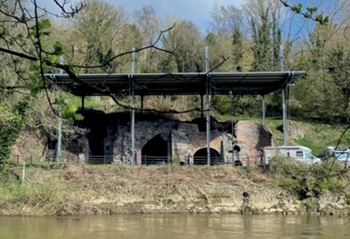Contract Awards provide 7.6bn boost to construction sector in July - but housebuilders continue to struggle
Contents |
[edit] Construction on a high in July
The beleaguered construction industry received a boost in July as the value of contracts awarded to suppliers reached 7.6bn, the highest monthly value this year, according to Construction analysts Barbour ABI’s latest analysis. The milestone follows a negative period which saw awards fall 21% between Q1 and Q2.
A 184% monthly increase in the industrial sectors, including manufacturing, warehouses, and military projects was the driving force behind the uptick, alongside a positive month for infrastructure.
Infrastructure contributed with £2.0bn in contract awards, mainly from renewable power generation, and the commercial sector also had a good month with £1.1bn awarded in large office projects.
[edit] Planning approvals improve
Infrastructure also had an exceptional month for planning approvals, posting £5.1bn, thanks to the £2.6bn Hornsea Project 4 and other renewable generation projects, contributing to £13.bn of approvals in total - up from £8.4bn in June
Meanwhile, the industrial sector saw its highest planning approval values in over a year, and the hotel and leisure sector saw the highest since January 2021 thanks to the Gateshead Quay Arena redevelopment. Commercial construction also returned the averaging levels.
[edit] Housebuilders continue to struggle
Despite the good news elsewhere, residential construction continued to struggle against various market factors including high-interest rates, inflation and the gridlocked planning system. £4.7bn in approvals provided a glimpse of sunshine, but contract awards remained low at £1.8bn - 15% down compared to 2022.
Barbour ABI’s analysis of planning applications continues to highlight the bearish outlook of many housebuilders. There was just a £3.4bn average monthly value of planning applications in Q2. The weakest since Q2 in 2020.
[edit] Comments
Barbour ABI Chief Economist Tom Hall commented:
“Our latest analysis shows some respite after a difficult period for the construction industry. However, given the uncertainties in the wider economy, these improved levels are unlikely to continue over the coming months. Meanwhile, the residential sector, hammered by high-interest rates and inflation, continues to struggle to keep its head above water.
Planning applications, which are a strong indicator of future output, saw a very weak end result of £7.5bn per month in Q2, the lowest quarterly result since the first Covid-19 lockdown. Overall planning application activity was 23% lower in Q2 compared to last year. We also saw a 45% decrease month on month in infrastructure planning applications in last month’s figures, so this sector is unlikely to prop up the industry for much longer.”
Find out more at https://barbour-abi.com/
--Barbour ABI 17:16, 09 Aug 2023 (BST)
[edit] Related articles on Designing Buildings
- 2023 Quarter 1 ends on a high with 7bn in construction contracts awarded in March
- 2023 Spring Budget summary and industry response.
- A second spring budget of 2023.
- Chancellor's 2022 Autumn statement industry response.
- Construction organisations and strategy.
- Corporate finance.
- Economic development and construction.
- Funding options for building developments.
- How does the state of the economy influence the construction industry?
- Infrastructure tumbles, adding to construction industry woes
- Investment.
- Microeconomics.
- Modular buildings.
- Prefabrication.
- Property development finance.
- Working capital.
Featured articles and news
The act of preservation may sometimes be futile.
Twas the site before Christmas...
A rhyme for the industry and a thankyou to our supporters.
Plumbing and heating systems in schools
New apprentice pay rates coming into effect in the new year
Addressing the impact of recent national minimum wage changes.
EBSSA support for the new industry competence structure
The Engineering and Building Services Skills Authority, in working group 2.
Notes from BSRIA Sustainable Futures briefing
From carbon down to the all important customer: Redefining Retrofit for Net Zero Living.
Principal Designer: A New Opportunity for Architects
ACA launches a Principal Designer Register for architects.
A new government plan for housing and nature recovery
Exploring a new housing and infrastructure nature recovery framework.
Leveraging technology to enhance prospects for students
A case study on the significance of the Autodesk Revit certification.
Fundamental Review of Building Regulations Guidance
Announced during commons debate on the Grenfell Inquiry Phase 2 report.
CIAT responds to the updated National Planning Policy Framework
With key changes in the revised NPPF outlined.
Councils and communities highlighted for delivery of common-sense housing in planning overhaul
As government follows up with mandatory housing targets.




















